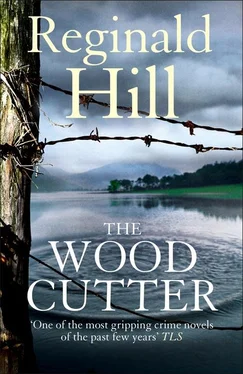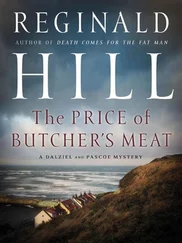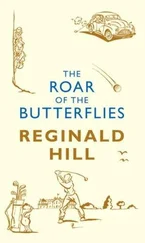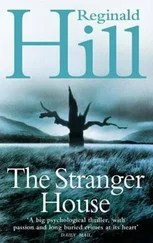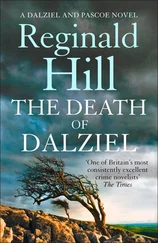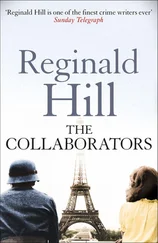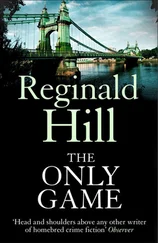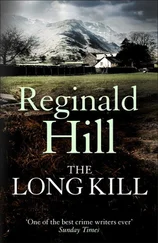But as what he wrote came closer to the most intimate details of his being, he naturally became less and less sure of sharing it with her.
So, show no eagerness. Do not press.
She said, ‘Wolf, time’s nearly up. I was wondering, is there anything I can get for you? Books, journals, that sort of thing? I should have asked before. Or something more personal. Something in the food line? Or proper linen handkerchiefs, silk socks, perhaps?’
He shook his head as if impatient at her change of subject, or perhaps at the silly notion that there could be something he might enjoy receiving, and said, ‘We were talking about Imo. I got to thinking about her after I wrote that last piece.’
She said, ‘Yes?’
He said, ‘That stuff about feeling hate, I mean it. Or part of me means it. But there’s also a part of me that hates me for feeling it. Does that make sense?’
She nodded and said gravely, ‘What wouldn’t make sense is for you not to feel it.’
That was the right answer. He pulled another exercise book out of his blouson.
‘You might like to see this,’ he said.
‘Thank you,’ she said, taking the book. She opened it and glanced at the first page.
And she knew at once she’d got what she wanted.
I was a wild boy, in just about every sense.
My mam, God bless her, died when I was only six. Brain fever, they called it locally. Probably some form of meningitis, spotted too late.
We had my dad’s Aunt Carrie living with us. Or rather we were living with her in her farmhouse, Birkstane. Up there in Cumbria they still expect the young to take care of the old. Not that Carrie can have been all that old when we moved in with her. Birkstane was all that remained, plus a couple of small fields, of her husband’s farm. Widowed in her mid forties, already in her early fifties she was getting a bit forgetful. Also she had arthritis which gave her mobility problems. Normally up there supportive neighbours would have kept her going quite happily till her dotage, but she was a bit isolated, several miles from Mireton, the nearest village, right on the edge of the Ulphingstone estate.
Dad was her only living relative so when word reached him that there was a social worker snooping around, he knew something had to be done. I was still in nappies at the time, so I can only speculate, but I suspect it suited him to move into Birkstane. As head forester to Sir Leon, Dad had a tied cottage on the estate but as I often heard him say later, only a fool lives in a house another fool can throw him out of any time he likes. Not that he thought Sir Leon was a fool. In fact they got on pretty well, and far from dividing them, my liaison with Leon’s daughter only brought them closer together.
They both thought it was a lousy idea.
But that was a long way in the future.
Everything seems to have worked fine to start with. Birkstane was almost as handy for Dad’s work as the tied cottage had been. Mam got to work on the old farmhouse and dragged it back from the edge of dereliction, while Carrie, in familiar surroundings with someone constantly present to keep an eye on her, got a new lease of life.
All this I picked up later. Like I say, I was so young that my memory of those early years in Birkstane is generally non-specific, but I know how blissfully happy I must have been, for I recall all too clearly how I felt when they told me Mam was dead. No, not when they told me; I mean when it finally got through to me that being dead meant gone for good, meant I would never ever see her again.
I was in my second year at school. It had taken a whole year for me to come to terms with the daily separation from Mam; this new and permanent separation was a loss beyond all reach of consolation. I was far too young and far too immersed in my own pain to observe what this blow did to my father, but as I have no recollection of him finding the strength to try and comfort me, I’d guess he too was rendered completely helpless by the loss. I suppose if I’d drawn attention to myself, someone might have tried to do something about me, but I think I must have moved in a bubble of grief through which everyone could see and hear me behaving apparently normally – in fact I suspect that many people observed what a blessing it was that I was clearly too young to take it all in and the best thing was for everyone to treat me as if nothing important had happened.
What they didn’t realize was that within that bubble I too was as good as dead, and as I slowly came back to life, I think I unconsciously resolved that never again would I be in a position where the loss of any single individual could cause me such pain.
Because there was still a woman in the house, no thought was given to the need to make any special arrangements for me. And because of Carrie’s apparent return to her old self during the five years of having us to live with her, nobody doubted that she was a fit guardian and housekeeper.
The reality was very different. Her mobility problems made it hard for her to keep up with a wild young boy, and without my mam’s corrective presence, the old memory lapses (the result, it was later diagnosed, of early-onset Alzheimer’s) now became much more significant. As for Fred, my dad, he went out to work and rarely came home till it was time for his tea. This is the generic term we gave to the early evening meal. As Carrie got more forgetful, the combinations of food offered to us grew increasingly eccentric, but neither of us took much notice – me because I was too young to make comparisons, Dad because he prefaced the meal with a couple of bottles of strong ale and washed it down with another two before driving down to the Black Dog in Mireton. He successfully avoided the attention of the local constabulary by driving his old Defender along the forest tracks, which he knew like the back of his hand, and leaving it on the edge of the estate and walking the last quarter mile to the Dog.
Sorry, I’ve gone on a lot more than I intended about all this early trauma stuff and I know all you really wanted was an account of how me and Imogen got together. But I started off trying to explain the kind of youngster I was, and to understand that, you need to know the rest.
To cut a long story short, because of my instinctive reluctance to get close to anybody and because of the almost total lack of any meaningful supervision at home, I ran wild. Literally. Every free moment I had I spent roaming the countryside. Some streak of natural cunning made me realize the dangers of too much truancy, and I trod a line between being an internal nuisance and an external problem. But I usually turned up late and when I could I bunked off early. As I said, Aunt Carrie was ill-equipped physically or mentally to cope with me. Indeed, as I grew older and wiser, if that’s the right word, a combination of self-interest and I hope fondness for the old lady made me cover up for her as best I could.
Of course my behaviour did not go unremarked, but unlike in the towns where suspicion of child neglect prompts people either to look the other way or at best to ring Social Services anonymously, in the countryside they deal with such problems in-house, so to speak. Looking back, I see that I was probably watched over much more carefully than I understood then. The postman was the eyes and ears of the district, the vicar dropped by a couple of times a week, and there was a steady stream of local ladies who found a reason to call on Carrie, and help with a bit of tidying up. Also for some reason I never really understood, everyone, teachers and locals alike, seemed ready to show a remarkable degree of tolerance towards my aberrant behaviour.
Maybe I’d have turned out better if someone had been ready to skelp my ear a bit more frequently!
Читать дальше
